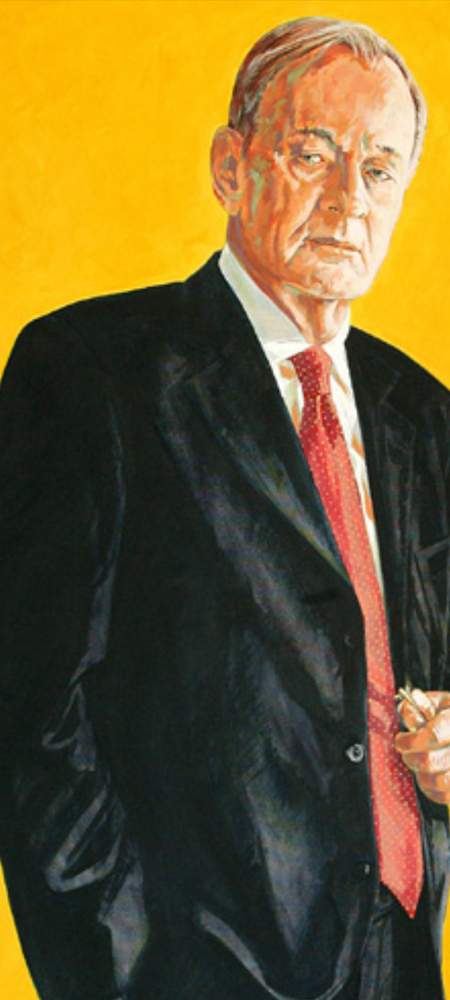Chapter
No
Jean Chretien
Like his close friend Bill Clinton (b. 1946), Jean Chretien was a moderate, pragmatic leader who presided over the Canadian era of “peace and prosperity” that defined much of the western world in the 1990s. An often silly, fun-loving “little guy” known for his half-paralyzed face and strong French-Canadian accent, Chretien’s easygoing style and cheery patriotism kept him personally popular in the face of partisan critics.
A Liberal from a young age, Chretien was raised in a poor Quebec family and never fully mastered English. Rising to become a successful lawyer, in 1963 at age 29 he was elected to Parliament where he would proceed to sit for almost 40 uninterrupted years. After serving briefly in the cabinet of Lester Pearson (1897-1972), Chretien became the right-hand man of Prime Minister Pierre Elliott Trudeau (1919-2000), holding almost every important ministry at some point during Trudeau’s 15-year administration. In 1984 Chretien lost the battle to succeed Trudeau to John Turner (b. 1939), but then replaced Turner as Liberal leader in 1988. He was elected prime minister in 1993, riding a wave of broad public disgust with the incumbent Progressive Conservatives.
Chretien led Canada for the remainder of the 1990s and, working with his popular finance minister, Paul Martin (b. 1938), helped get the country’s ballooning debt and deficits under control, through spending cuts, tax cuts, and shifting more responsibilities to provincial governments. The country enjoyed a steady period of economic growth, which in turn made his government broadly trusted by voters. Quebec nationalism became a defining theme of his second term, and though a 1995 referendum on separation was narrowly voted down in the French province, the outcome was nail-bitingly close. His popularity took a hit near the end of his third term after a controversy known as the Sponsorship Scandal erupted, when it was revealed Chretien’s political party had secretly laundered tax dollars to itself through phoney government contracts for anti-separatism initiatives.
A critic of U.S. President George W. Bush (b. 1946), Chretien sent Canadian troops to Afghanistan to fight Islamist radicals shortly after the attacks of September 11, 2001, but allied with the European leaders who opposed the U.S.-led Iraq War of 2003. He stepped down a few months after the invasion and returned to legal work. Today, Chretien remains a respected “elder statesman” within the Liberal Party and occasionally speaks out on issues.
